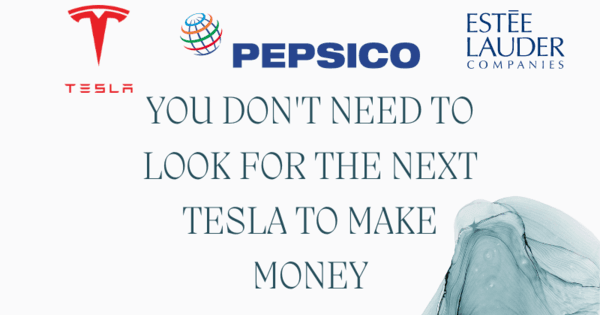Advertisement
OPINIONS
You don't need to look for the next Tesla to make money
Boring stocks can be great investments too.
Oftentimes, as a new investor, you think you need to find the most revolutionary company at the cheapest possible price to make a lot of money. However, that is not the case most of the time. I hope to demonstrate this point through one of my favourite superinvestor, Terry Smith, as well as explain some of the fundamentals behind a “boring” but good stock.
Over the past decade, Terry Smith has managed to outperform the SP500 consistently while keeping the churn rate of his portfolio low. A low churn rate means that it is replicable for us retail investors, which means that his strategy is worth our consideration.
His portfolio has had an annualised return of 15.8%, while the MSCI World Index gave an annualised return of 11.2%. So what is his strategy? It is simple. He repeats it consistently in his public letters to shareholders.
- Buy good companies.
- Don’t overpay.
- Do nothing.
It looks so simple, but it is not easy to execute. Firstly, what you think is a “good” company is probably different from Terry Smith’s definition.
In Fundsmith’s owners’ manual, it is stated that a high quality business is one which can sustain a high return on operating capital employed (ROCE). In cash.
The two most important parts of that statement is that the business can sustain the returns on capital employed. He believes that a company that sells many small items each day is better able to earn more consistent returns over the years than a company whose business is cyclical (semiconductors) or “lumpy” (property developers). One great industry is the consumer staples industry, filled with companies like PepsiCo and Church & Dwight. This is relevant to the inflationary environment we are currently experiencing. Consumers can defer replacing their cars, houses and appliances, but not food and toiletries.
Also, the reason why he focuses on cash more than, say, earnings per share, is that cash is tangible and difficult for companies to perform financial engineering (“cooking the books”).
Looking at his portfolio, there are many “boring” companies such as Philip Morris, Estee Lauder, and McCormick. None of them aim to revolutionise their respective industries but yet have been phenomenal investments over the past decade. I believe they will continue to be great investments in the future because these businesses are fundamentally easier to operate and more predictable than having to consistently create the next supercar or cure for cancer.
Secondly, investors often pull the trigger too early. It is easy to get excited about a company and justify overpaying for it. Unfortunately, there is no single metric that can guarantee that you are buying a stock at a cheap valuation. However, a great solution to this issue is slowly building up your position through dollar cost averaging.
Lastly, many investors, including me, struggle to do nothing. It always feels like we should do something about our portfolios to make it better. But, that is not the case when you are investing in the long-term. Doing nothing allows the good companies you identified to compound their investments and these compounding effects will reflect on your portfolio in the long run.
Next, let us look at Estee Lauder, the third largest position in Terry Smith’s portfolio. I have been building a position in this stock throughout this year because it has dropped to much more reasonable valuations. Estee Lauder has a wide range of premium brands that cater to a wide variety of consumers. Because of that, they have strong pricing power and should be able to fare well in any environment. They also consistently acquire great brands, having acquired Tom Ford this year. People always want to look good and the growing middle class means a larger spending budget for cosmetic products. Currently, Estee Lauder generates a free cash flow yield of 3.37% and has a relatively high return on capital employed of 20-30%. This is in addition to a dividend growing 10% per year while keeping shares outstanding relatively flat. This means that Estee Lauder is able to generate high cash flows from operations and prioritises returning that cash back to the shareholders.
This is much better than a popular innovative company like Palantir, for example. Although Palantir has a free cash flow yield of 1.21%, their returns on capital employed is negative and they have been diluting shareholders heavily. This means that their generation of free cash flow is at the expense of shareholders. From the perspective of a tech enthusiast, their product is indeed interesting. But, from the perspective of a shareholder, I would prefer to hold off until they prove to be prioritising the shareholders’ interests instead of funding the company’s growth through share dilution.
In summary, I hope I have convinced you to be more open to the idea that you do not need to find revolutionary companies to make money. Oftentimes, they come with outsized risks that may not be worth it. Other superinvestors like Nick Sleep and Bill Ackman, also invest in boring companies which outperform the market and I deeply admire and respect their investment methodologies.
Comments
914
8
ABOUT ME
914
8
Advertisement
No comments yet.
Be the first to share your thoughts!
